
Democratic Education
as Inclusion
We can disagree and still love each other unless your disagreement is
rooted in my oppression and denial of my humanity and right to exist.
James Baldwin
Democratic Education
as Inclusion
Nuraan Davids and Yusef Waghid
LEXINGTON BOOKS
Lanham Boulder New York London
Published by Lexington Books
An imprint of The Rowman & Littlefield Publishing Group, Inc.
4501 Forbes Boulevard, Suite 200, Lanham, Maryland 20706
www.rowman.com
86-90 Paul Street, London EC2A 4NE
Copyright 2022 by The Rowman & Littlefield Publishing Group, Inc.
All rights reserved. No part of this book may be reproduced in any form or by any electronic or mechanical means, including information storage and retrieval systems, without written permission from the publisher, except by a reviewer who may quote passages in a review.
British Library Cataloguing in Publication Information Available
Library of Congress Cataloging-in-Publication Data Available
ISBN: 978-1-7936-5236-2 (cloth : alk. paper)
ISBN: 978-1-7936-5237-9 (electronic)
 The paper used in this publication meets the minimum requirements of American National Standard for Information SciencesPermanence of Paper for Printed Library Materials, ANSI/NISO Z39.48-1992.
The paper used in this publication meets the minimum requirements of American National Standard for Information SciencesPermanence of Paper for Printed Library Materials, ANSI/NISO Z39.48-1992.
Contents
Ronald David Glass
I must begin by thanking Nuraan Davids and Yusef Waghid for the invitation to engage with their provocative analysis of democracy as inclusion and of ubuntu as the conceptual and practical guides to the reconstruction of democratic education, and of higher education and PK12 schooling as well. I am honoured to be asked to address such important topics that have been pressing themselves onto the agendas in nations across the globe, yet I am humbled to be asked to join this conversation within the South African context, a place far from my home. I offer my reflections in heartfelt solidarity, and hope they provide some sustenance in your own journeys towards your freedom dreams of a democratic society founded on equal dignity and respect.
As Davids and Waghid insist, equality is required to enter into the formation of a democratic community and participate ethically in the fraught ongoing negotiations at the borders of myriad inclusionsexclusions; it is required to speak truthfully without fear of the dissensus that makes genuine dialogue, critical understanding and social transformation possible; and it is required if we are all to weave together new possibilities for democratic education and community grounded in ubuntu, human dignity and interdependence. I thus ask myself, how can I, never a visitor to the African continent, accept this invitation and enter their reflections from a position of equality, and so I begin with a truth of each as human, as beings on this earth.
I write from my home in Berkeley, California, on unceded lands of the Chochenyo-speaking Muwekma Ohlone peoples, on the great bay that opens through the golden gate headlands to the vast ocean to the west. I grew up a great distance east of here, in the Ohio River valley at the southern reaches of the Algonquian-speaking peoples, in the lands of the Shaawanwaki. My uprooted Jewish and European grandparents arrived in those lands in desperation and hope, fleeing pogroms, imprisonment and orphanhood, and there my own tangled roots got intertwined with the Leni-Lenape people, the traditional grandparents to the Shaawanwaki, who had themselves been driven there by the violence of Christian European colonial powers. There I was born, raised up from the slate clay left behind on the etched glacial scrape that holds the great lakes of North America. As a mud-person I have drawn sustenance from the lands, waters and beings that have since nourished me.
In recognition of these and all our relations as mud-persons and this fundamental equality of existence, I believe we have one starting point for a kind of equality that can guide us through the contact zones social spaces where cultures meet, clash, and grapple with each other, often in contexts of highly asymmetrical relations of power, such as colonialism, slavery, or their aftermaths as they are lived out in many parts of the world today (Mary Louise Pratt, 1990: 34) that are the spaces of democratic inclusion. I offer my reflections in the spirit of forging some of the transcultural creativity that Pratt argues can emerge from contact zones, making them also places of new literacies and ways of life, where the reading and writing of words engage critically in the reading and writing of new worlds into existence, as Paulo Freires work in education as a practice of freedom convincingly demonstrated (2018/1970). Of course, what it is to be human, who counts as human, and whether or not education is permitted to serve its primary aim of humanisation, is precisely part of what is contested within the spaces of inclusion defined by coloniality. So, I begin with not just my humanness but my relation to all other existent beings, and with appreciation for this ineliminable equality of being.
Davids and Waghid consider a number of approaches to democratic inclusion and education and outline their reach and limits. They rightly recognise that inclusion into existing systems and institutions cannot be an adequate basis for equality since those very systems and institutions are both structured by and structuring agents of social, economic, cultural and political domination and its resultant oppression. In fact, the knowledges and practices of schools from the earliest years to the highest rungs of university and the professions, despite their professed aim to develop the full capacity of persons, persistently reproduce both the material orders of superiorityinferiority and the psychological correlates that are necessary to sustain oppression. Thus, even in some of these most open of social spaces, inclusion, insufficient and limited though it is in the effort to extend democracy, yields not the imagined harmony desired by the dominant for their assumed generosity by including the worthy and willing from among the formerly excluded, but an inevitable dissensus.
The limits of inclusion reveal the thickness of the weft into which is woven the warp of power of the cultural threads of the orders of government, labour, church, media, school and language and identity themselves. When one is defined and forced out of the dominant orders, of necessity one is presented with a kind of double bind, and so one must live transgressively, either in the open or surreptitiously (Lugones, 2003). Thus, it is that Davids and Waghid unpack the inclusions and exclusions of racial formation, the sociohistorical processes by which racial categories are created, inhabited, transformed (Omi & Winant, 1994: 55), and they extend their critical analysis to ethnicities and genders. Davids and Waghid make clear that race, class, ethnicity, gender reveal the dominant orders while concealing the human being thus ordered. Even in being named for inclusion, as a race or a gender, for example, one can be excluded in the very name itself since it is a reification of relations of power. For these reasons, even in a context of inclusion, it must be repeatedly asserted that these seeming identities or ideological frames are not some kind of biological truth that somehow tells all that is important to know about a person or people, nor do they tell nothing about a person or people because of their construction they are not empty and without material realities, and the consequent material realities have both negative and positive attributes. In other words, race, ethnicity and gender each tell about the historico-cultural-political-psychoanalytic processes through which those identities are formed and we experience ourselves, others and the world; that is, they tell about some of the forces that shape our consciousness, our praxis (Glass, 2012).
Next page
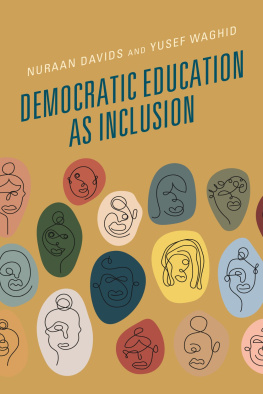

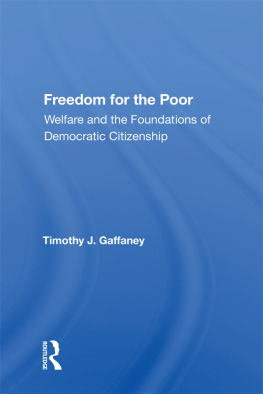
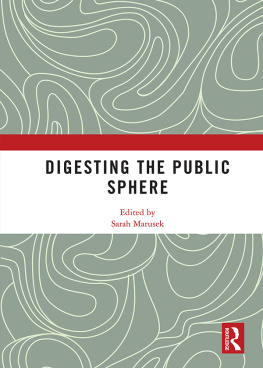
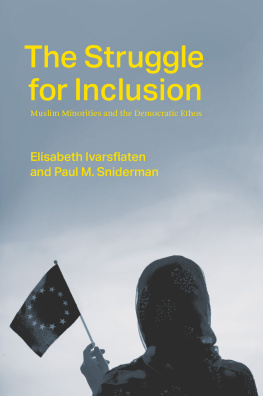
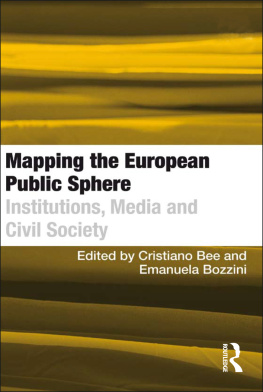
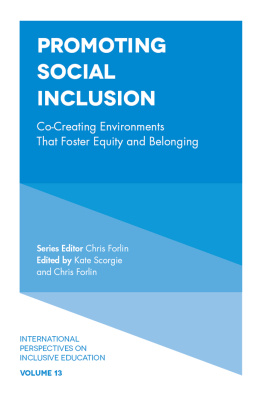
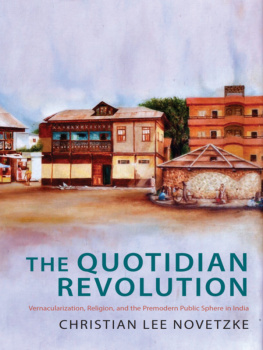




 The paper used in this publication meets the minimum requirements of American National Standard for Information SciencesPermanence of Paper for Printed Library Materials, ANSI/NISO Z39.48-1992.
The paper used in this publication meets the minimum requirements of American National Standard for Information SciencesPermanence of Paper for Printed Library Materials, ANSI/NISO Z39.48-1992.